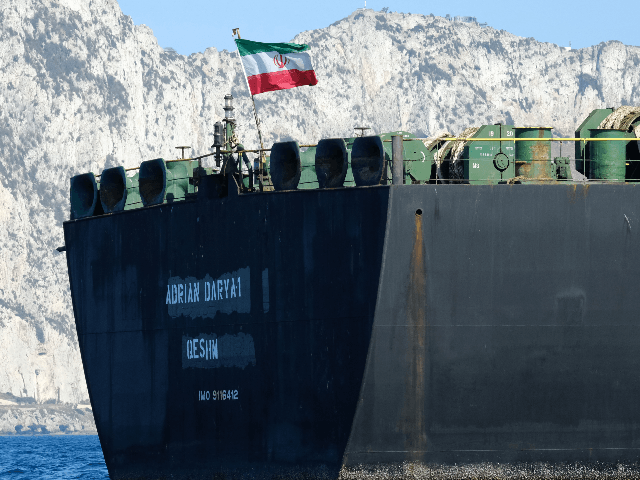(UPI) — The Trump administration on Monday blacklisted two Chinese businessmen and six Chinese companies for doing business with the Islamic Republic of Iran Shipping Lines and in some cases of helping it to evade U.S. sanctions.
In June, the United States sanctioned the IRISL and its Shanghai-based subsidiary the E-Sail Shipping Company for contributing to Tehran’s ballistic missile and military programs through transporting proliferation-sensitive materials.
U.S. Secretary of State Mike Pompeo has called the IRISL “the shipping line of choice” for Iranian procuring agents, accusing the transport network of contributing to the Middle Eastern nation’s proliferation of weapons of mass destruction and saying the sanctions against it were a warning to governments, entities and individuals against doing business with it.
The U.S. State Department named Reach Holding Group and its subsidiary Reach Shipping Lines, Delight Shipping, Gracious Shipping, Noble Shipping and Supreme Shipping as being sanctioned Monday for having knowingly sold, supplied or transferred to Iran “significant goods or services used in connection with the shipping sector of Iran.”
Eric Chen, the chief executive officer of Reach Holding Group, and Daniel Y. He, president of Reach Holding Group, were also sanctioned under the move Monday, the State Department said.
Since the IRISL was blacklisted in June, Reach Holding Group and Reach Shipping lives have arranged port berths for IRISL vessels at Chinese ports, the State Department said, adding that Reach Shipping Lines also knowingly sold, supplied or transferred four large container vessels to HDASCO, an IRISL subsidiary.
The other four companies were each accused of selling, supplying or transferring a large container vessel to Iran for use by its shipping sector.
The State Department also accused Reach Holding Group and Reach Shipping Lines of providing services to IRISL and its subsidiaries to evade U.S. sanctions.
Over the summer, the two companies employed strategies used to conceal Chinese entities from U.S. sanctions for the Iranian network, the State Department said, stating Reach Shipping Lines attempted to conceal the IRISL activities from the People’s Republic of China.
The State Department said Reach Shipping Lines has lied to Chinese companies about the involvement of IRISL and its subsidiaries in shipments by falsifying documents as well as dealing in other “deceptive practices so that the Chinese government, industry and maritime stakeholders would not know about IRISL and its subsidiaries activities in the PRC.”
“Today, we reiterate a warning to stakeholders worldwide: If you do business with IRISL, you risk U.S. sanctions,” Pompeo said in the statement.
The sanctions came a day after a United Nations arms embargo barring Iran from dealing in conventional weapons expired.
Pompeo has argued that U.N. sanctions against Iran, including the embargo, have been re-instated through a so-called snapback mechanism, and on Sunday he rejected the embargo’s expiration, warning anyone and any country that does business with Iran on weapons will be met with U.S. sanctions.
The Trump administration has repeatedly slapped sanctions against Iran since May 2018 when President Donald Trump withdrew the United States from an Obama-era multination accord aimed at preventing Iran from acquiring a nuclear weapon.
The sanctions have been at the core of his administration’s “maximum pressure” campaign to force Tehran back to the negotiating table on a new deal.
In response, Iran has also repeatedly reneged on its agreements and the United States has tried to put U.N. sanctions back onto Iran that were removed when the 2015 deal was signed through a so-called snapback mechanism.
However, the United Nations has said the Trump administration does not have the power to trigger the snapback while U.S. allies Britain, France and Germany have said the United States lacks the legal foundation to access the mechanism.
In the statement on Monday, Pompeo said a U.S. Security Council resolution that “mandates vigilance” when doing business with IRISL was “now in effect due to the snapback of U.N. sanctions.”
Tensions between Washington and Tehran have been ratcheting since 2018, reaching their highest point early this year when the Trump administration assassinated Iran’s Gen. Qassem Soleimani in a drone strike. In retaliation, Tehran fired missiles at two U.S. military bases in Iraq. Then, amid a heightened state of readiness fearing U.S. retaliatory measures, Iran shot down a Ukrainian airliner, killing all 176 onboard, near Tehan.

COMMENTS
Please let us know if you're having issues with commenting.